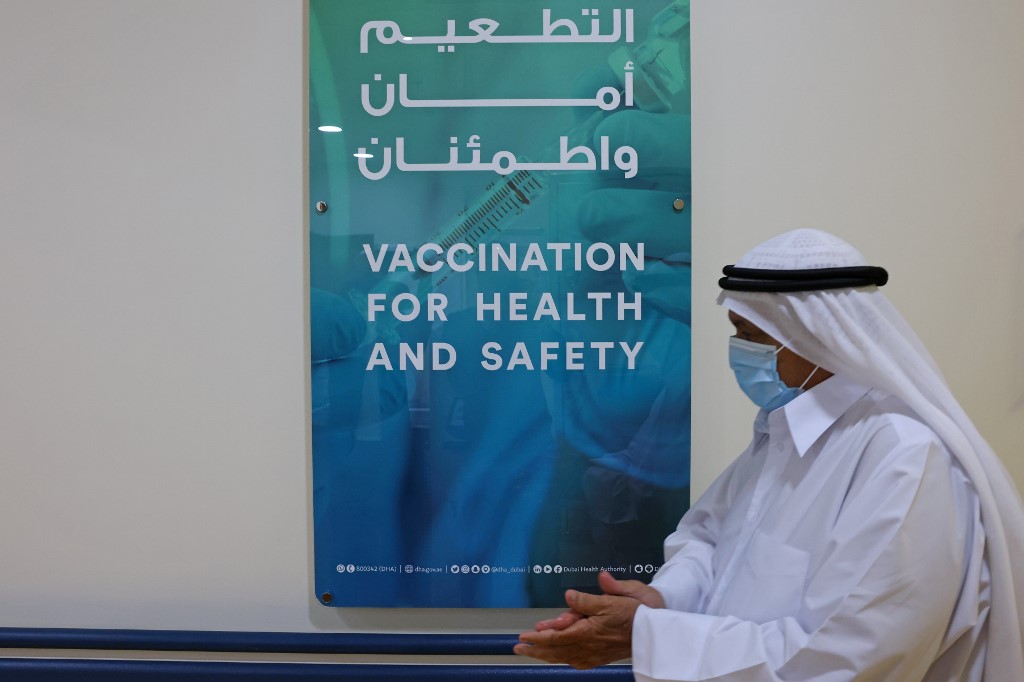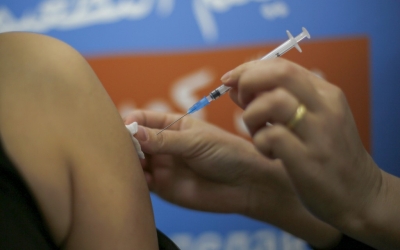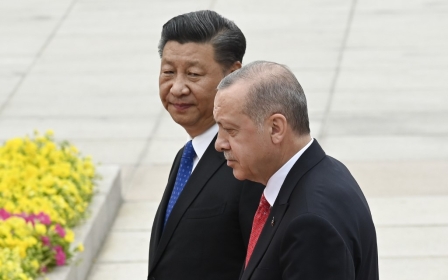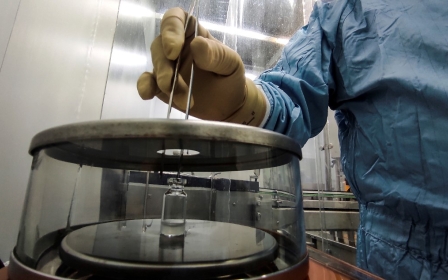Why the UAE adopted China's Covid-19 vaccine
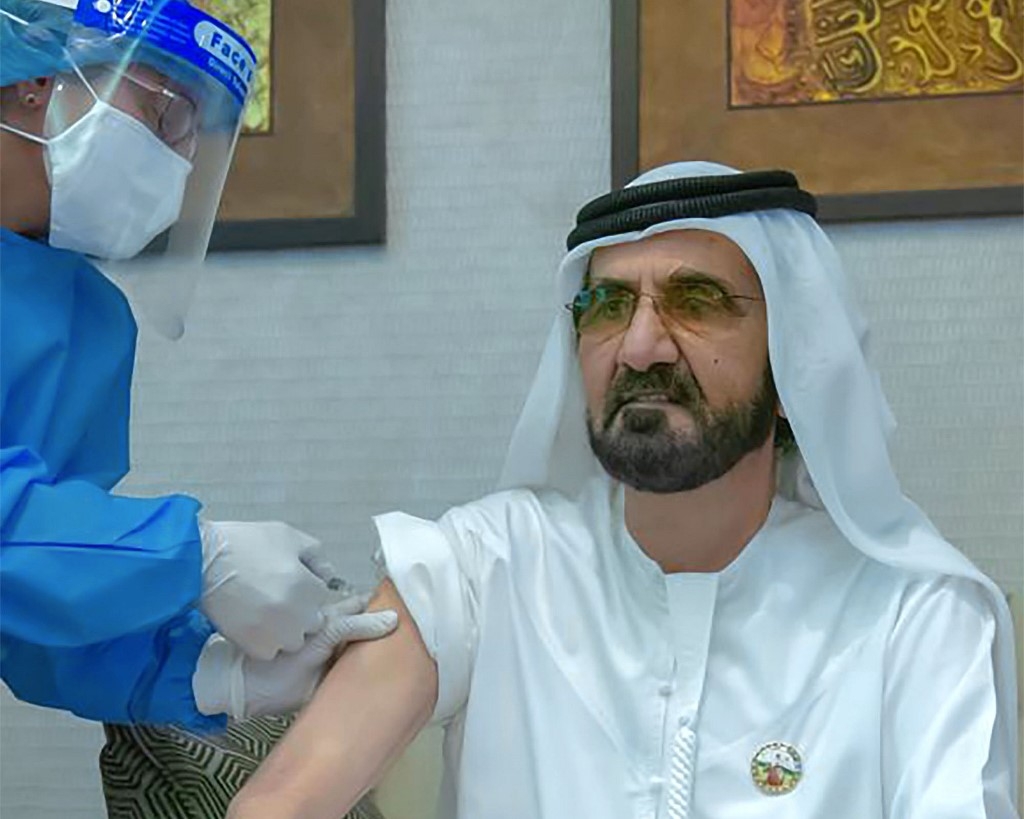
When Dubai relaxed its entry requirements for tourists in October, it became the envy of the pandemic-hit world. Western influencers flocked to the city and posted about their newfound freedom in the sun as Dubai received a cash infusion to its ailing economy.
Some influencers showed off their sun-kissed bodies with motivational captions urging their followers to stay positive, while others had mask-clad waiters dangle gold-encrusted meat over their mouths on their Instagram stories.
The influencers have since taken down these posts after receiving a backlash from their followers when they labelled their visit to Dubai as a "business trip."
But after months that saw visitors return, with Dubai's hotels reaching 70 percent occupancy in December, the United Arab Emirates was forced to reintroduce restrictions to curb a new surge in coronavirus (Covid-19) cases.
One way the UAE has attempted to control Covid-19 has been an ambitious vaccination programme that aims to inoculate half of its near-ten million population by April.
Latest figures show the UAE has administered at least three million vaccines, making it the second-highest number of vaccinations per capita administered anywhere in the world.
Close to the UAE is Bahrain, which has given nearly 200,000 doses to its population.
Unlike Israel, which has topped global records for vaccinating its population, both Gulf states were early adopters of BBIBP-CorV, a vaccine owned by Sinopharm, a company backed by the Chinese state.
Lack of transparency
The vaccine, developed by the Beijing Institute of Biological Products, uses inactivated viral particles from the coronavirus to teach the immune system to make antibodies against the virus.
The company initially faced criticism for its lack of transparency on the vaccine's efficacy and has yet to release details from its phase III trials.
'Xi's government is focused on promoting the most expensive and less effective Chinese vaccines'
- Steve Tsang, head of China Institute, SOAS
But thanks to Abu Dhabi and Manama, the vaccine is slowly gaining credibility. In September, the UAE gave it emergency approval for use on emergency workers after it conducted phase III trials for the vaccine.
Bahrain and the UAE approved the vaccine in December 2020, even before China, after announcing it has an efficacy rate of 86 percent. Neither government has released any details explaining how it came to that decision.
Sinopharm later announced at the end of last year that BBIBP-CORV has an efficacy rate of 79.34 percent, leading the Chinese government to approve it.
Vaccine diplomacy
China's medical diplomacy in the region is nothing new.
"Collaboration between Chinese and Middle Eastern countries dates back to the 1950s and 1960s, when China started to send medical teams to the region," said Chuchu Zang, an associate professor at Fudan University.
"So the contemporary collaboration between China and Middle Eastern countries in the health sector is a continuation of the old friendship."
In the early days of the pandemic, Beijing sent experts to the region and medical supplies to help countries fight the virus.
In return, Abu Dhabi sent protective equipment to China and set up a humanitarian program to help Chinese healthcare workers.
Steve Tsang, who heads the China Institute at the School of Oriental and African Studies (SOAS) in London, believes gaining the Chinese government's "goodwill" could be why Bahrain and the UAE have used the Chinese vaccine.
"I would have thought that rich countries like Bahrain or the UAE can afford to purchase any vaccine and do not have to rely on access to the Chinese ones," said Tsang.
Other experts believe the UAE and Bahrain's decision to acquire the Chinese vaccines was to keep their options open.
"The simple answer is that rich countries are keeping many options available, should there be problems with the European and American vaccines," said Maziyar Ghiabi, a Wellcome fellow at Exeter University and author of Drugs Politics.
Cinzia Bianco, a specialist on Europe and Gulf relations, echoes the question of availability being a more significant concern for Abu Dhabi and Manama than geopolitics.
"Concerns over the availability of American and European vaccines features quite high in the list. The failures of Pfizer/BioNTech to honour existing agreements with the European Union and others - albeit temporarily - is a case in point," Bianco, a research fellow at the European Council on Foreign Relations, told MEE.
"There is a belief in some GCC [Gulf Cooperation Council] governments that welcoming the Chinese vaccine diplomacy won't have negative political implications for them in the long run, with other global players increasingly hostile to China, such as the US.
"They may be right in this specific case, but this belief speaks to a larger trend to vastly underestimate the potential implications of the US-China rivalry for the GCC countries, which in some cases are sharing way more than the Covid-19 vaccines with China."
Both Beijing and Abu Dhabi have primed themselves to play a central role in vaccine diplomacy for the Middle East and North Africa.
Abu Dhabi on Sunday announced that it would be a hub for the delivery of vaccines around the world and is set to produce Sinopharm's vaccine locally.
'Rich countries are keeping many options available, should there be problems with the European and American vaccines'
- Maziyar Ghiabi, Wellcome fellow, Exeter University
The UAE is expected to donate any surplus to other parts of the region, having already donated 100,000 doses of Sinopharm's vaccine to Egypt.
Cairo has also already approved the use of Sinopharm's vaccine for emergency use to help its frontline workers.
While Beijing has vowed to supply Chinese vaccines via its "health silk road", Tsang believes China's President Xi Jinping is using the pandemic to shift the narrative on the coronavirus.
"If China was truly committed to the public good and health of [developing] countries it would focus on working with whoever produces the cheapest, most user-friendly and effective vaccine, and ensure that it is produced and distributed as widely and efficiently," said Tsang.
"That would be Oxford's Astrazeneca vaccine. But Xi's government is focused on promoting the most expensive and less effective Chinese vaccines."
Middle East Eye delivers independent and unrivalled coverage and analysis of the Middle East, North Africa and beyond. To learn more about republishing this content and the associated fees, please fill out this form. More about MEE can be found here.


